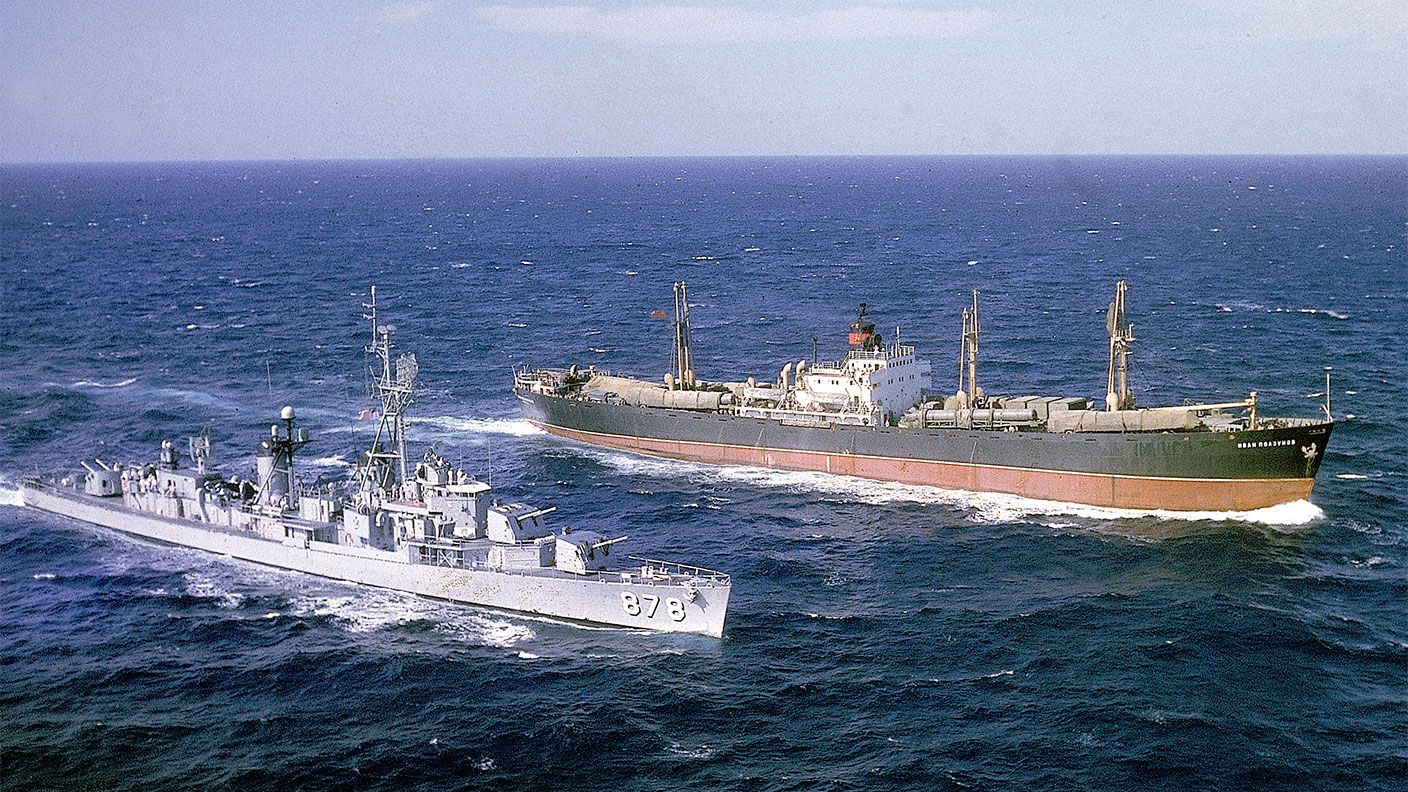
Get the latest financial news, insights and expert analysis from our award-winning MoneyWeek team, to help you understand what really matters when it comes to your finances.
You are now subscribed
Your newsletter sign-up was successful
Want to add more newsletters?

Twice daily
MoneyWeek
Get the latest financial news, insights and expert analysis from our award-winning MoneyWeek team, to help you understand what really matters when it comes to your finances.

Four times a week
Look After My Bills
Sign up to our free money-saving newsletter, filled with the latest news and expert advice to help you find the best tips and deals for managing your bills. Start saving today!
After the Second World War, the nuclear willy-waving contest known as the arms race took off in earnest, with Nato and the Warsaw Pact countries stocking up on atomic bombs like they were going out of fashion. In the early 1960s, the USA was "winning". At the start of the decade, it boasted nearly 20,000 warheads. And it was positioning them all around the Eastern bloc, making the Soviets very nervous.
The Soviet Union was on the back foot. It only had a couple of thousand warheads – sure, that was enough to destroy civilisation as we know it, but it wasn't enough for a self-respecting world leader to feel safe in his own trousers. So, the USSR decided to build some missile silos in Cuba and quietly stuff a few megatons there without Uncle Sam noticing. But Uncle Sam did notice. And he didn't like it.
Pictures from a U2 spy plane showed Russian soldiers setting up nuclear missiles. President Kennedy convened his top advisers and they discussed what to do. The hawks favoured bombing Cuba; the doves thought that was probably a bad idea. They decided to issue an ultimatum.
MoneyWeek
Subscribe to MoneyWeek today and get your first six magazine issues absolutely FREE

Sign up to Money Morning
Don't miss the latest investment and personal finances news, market analysis, plus money-saving tips with our free twice-daily newsletter
Don't miss the latest investment and personal finances news, market analysis, plus money-saving tips with our free twice-daily newsletter
So, on 22 October 1962, Kennedy went on national TV and announced a blockade of Cuba, demanding that the Soviets remove their weaponry from America's backyard, or there would be trouble. The world held its breath. There was a real sense that the West and the East were about to blow the rest of the world to Kingdom Come. Would the Soviets back down? And how would the US react if they didn't?
Two days later, Khrushchev replied. The US blockade was an "act of aggression" and Soviet ships would continue to go to Cuba. The world started going blue in the face. But after much diplomatic to-ing and fro-ing, and to the world's relief, an agreement was reached. The USSR would withdraw its missiles as long as the USA promised not to invade its Caribbean ally. Secretly, the USA also agreed to remove its own missiles from Turkey, alarmingly close to the Soviet Union's borders. Armageddon had been averted.
Get the latest financial news, insights and expert analysis from our award-winning MoneyWeek team, to help you understand what really matters when it comes to your finances.

-
 Should you buy an active ETF?
Should you buy an active ETF?ETFs are often mischaracterised as passive products, but they can be a convenient way to add active management to your portfolio
-
 Power up your pension before 5 April – easy ways to save before the tax year end
Power up your pension before 5 April – easy ways to save before the tax year endWith the end of the tax year looming, pension savers currently have a window to review and maximise what’s going into their retirement funds – we look at how
-
 31 August 1957: the Federation of Malaya declares independence from the UK
31 August 1957: the Federation of Malaya declares independence from the UKFeatures On this day in 1957, after ten years of preparation, the Federation of Malaya became an independent nation.
-
 13 April 1960: the first satellite navigation system is launched
13 April 1960: the first satellite navigation system is launchedFeatures On this day in 1960, Nasa sent the Transit 1B satellite into orbit to provide positioning for the US Navy’s fleet of Polaris ballistic missile submarines.
-
 9 April 1838: National Gallery opens in Trafalgar Square
9 April 1838: National Gallery opens in Trafalgar SquareFeatures On this day in 1838, William Wilkins’ new National Gallery building in Trafalgar Square opened to the public.
-
3 March 1962: British Antarctic Territory is created
Features On this day in 1962, Britain formed the British Antarctic Territory administered from the Falkland Islands.
-
10 March 2000: the dotcom bubble peaks
Features Tech mania fanned by the dawning of the internet age inflated the dotcom bubble to maximum extent, on this day in 2000.
-
9 March 1776: Adam Smith publishes 'The Wealth of Nations'
Features On this day in 1776, Adam Smith, the “father of modern economics”, published his hugely influential book The Wealth of Nations.
-
 8 March 1817: the New York Stock Exchange is formed
8 March 1817: the New York Stock Exchange is formedFeatures On this day in 1817, a group of brokers moved out of a New York coffee house to form what would become the biggest stock exchange in the world.
-
7 March 1969: Queen Elizabeth II officially opens the Victoria Line
Features On this day in 1969, Queen Elizabeth II took only her second trip on the tube to officially open the underground’s newest line – the Victoria Line.
